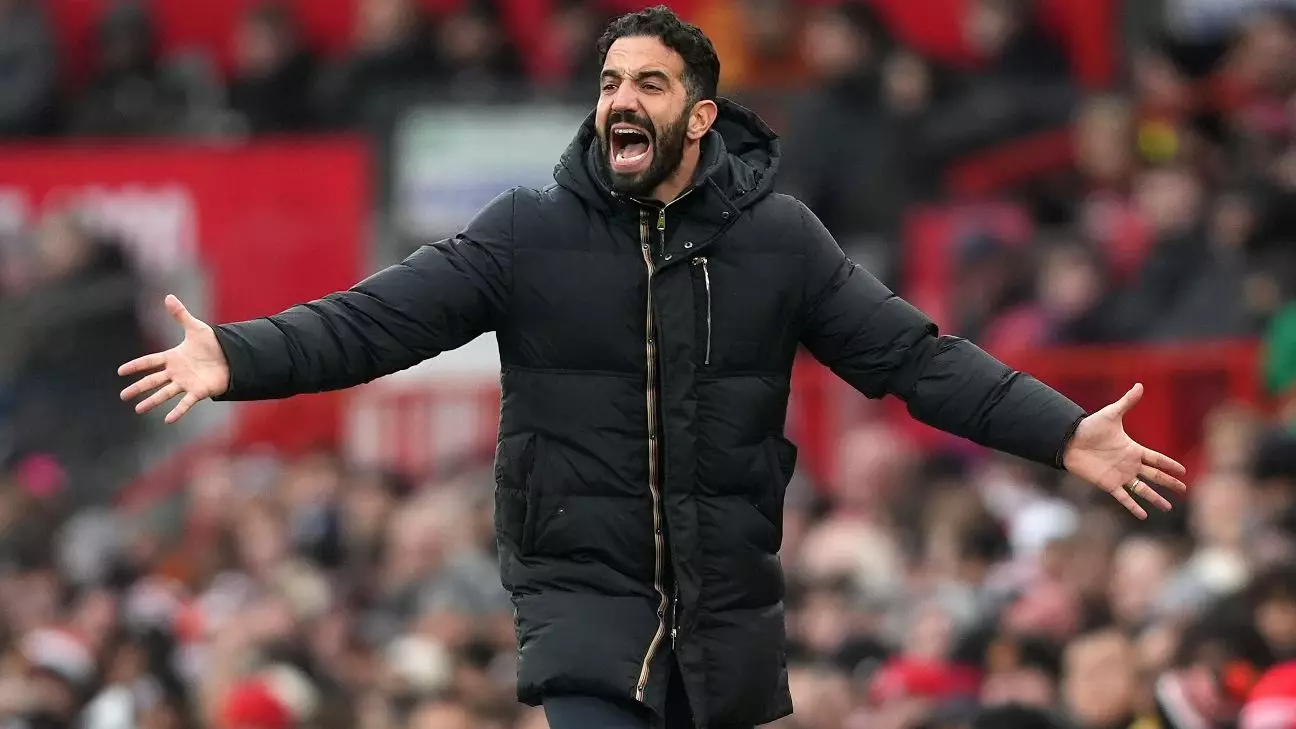In the realm of elite football management, job security is a concept as elusive as a clean sheet. Following a string of challenging performances, Manchester United’s head coach, Ruben Amorim, has articulated a sentiment that resonates deeply within the corridors of Old Trafford: “I’m fighting for my job.” This admission mirrors the tumultuous climate surrounding the Premier League giants as they navigate the latter part of the season. With Amorim at the helm since November, the team has experienced an unsettling run, suffering seven losses in just 13 league matches. As expectations weigh heavy on the shoulders of every coach, Amorim’s candid acknowledgment of the precariousness of his position highlights the pressure cooker environment in which he operates.
The January transfer window is often viewed as an opportunity for clubs to recalibrate and bolster their squads, yet Amorim appears to have adopted a gamble-laden approach. By retaining a relatively unchanged roster, he risks compounding the team’s existing challenges, especially given the departures of key attacking players like Antony and Marcus Rashford. The coach has also indicated that the club’s transfer strategy was intentional yet filled with uncertainty. “We are taking some risks,” he articulates, pointing to a deliberate shift in tactics as he redefines the squad’s identity during a tumultuous period. This strategy carries consequences, as supporters are justifiably anxious about the implications of such decisions on the team’s performance.
Amorim’s comments about “fighting for our jobs until the summer” resonate with a sense of urgency that captures the mood of a club in transition. There is a palpable fear among the fanbase that the lack of reinforcements could render United vulnerable as they strive to find their footing. The concern is accentuated by the realization that without significant scoring output, the path to recovery may be fraught with difficulty. The coach’s straightforward acknowledgment of the precarious nature of their current form serves as both a rallying cry and a stark reminder that the clock is ticking.
Despite the grim statistics, Amorim remains undeterred in his vision for the team. His belief in the potential payoff of his strategic decisions showcases a resilience common among successful leaders. He notes that the absence of new signings might afford the coaching staff more time to implement their strategies on the training ground—an intriguing assertion in light of their recent struggles. “We will have time to train,” he insists, suggesting that the necessity for consistent training could aid in refining the players’ abilities and strategies, thereby bolstering team cohesion and performance.
Navigating the emotional terrain of player departures only compounds the challenges Amorim faces as he attempts to build a cohesive unit. The departure of Rashford, a player with substantial impact and recognition, symbolizes a shift not just in personnel but also in tactics and morale. In his latest press conference, Amorim deftly deflected questions regarding Rashford to focus on the team’s future, effectively demonstrating his resolve to manage the narrative surrounding the club. His intention to change the ethos of his squad with players that possess a “different profile” echoes the ethos of many managers who advocate for transformation in times of difficulty.
As the FA Cup looms on the horizon and discussions of the league intensify, Ruben Amorim’s journey at Manchester United is a testament to the complexities of football management. The stakes are high, and the risks mounting. By acknowledging the challenges and articulating a vision, he sets the stage for potential redemption—or further tribulation. With every match that passes, the narrative unfolds, revealing whether his risky maneuvering will eventually yield success or become a cautionary tale in the annals of football history. For Amorim, the next chapter is not just about survival; it’s about reestablishing Manchester United’s standing in the footballing hierarchy.

